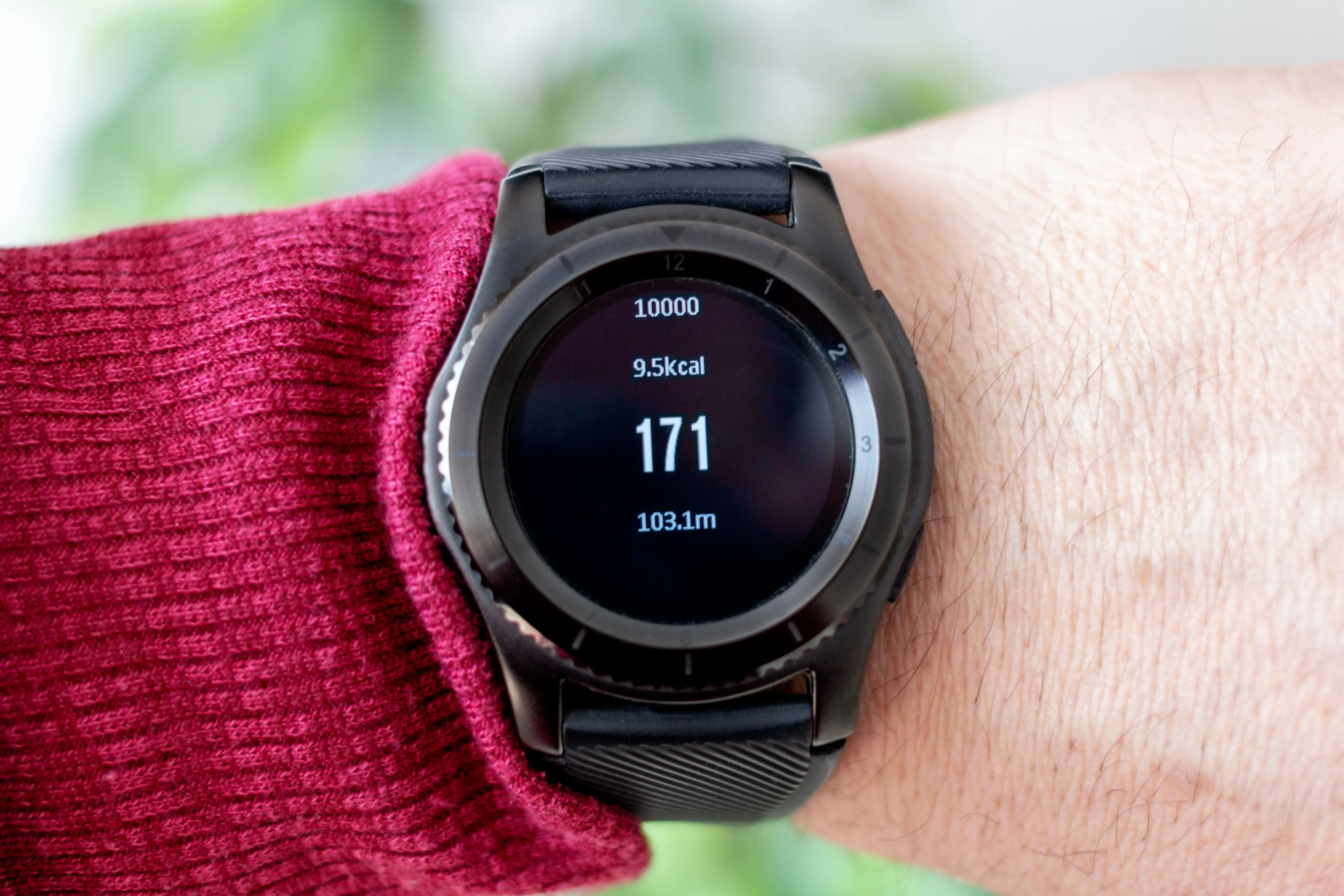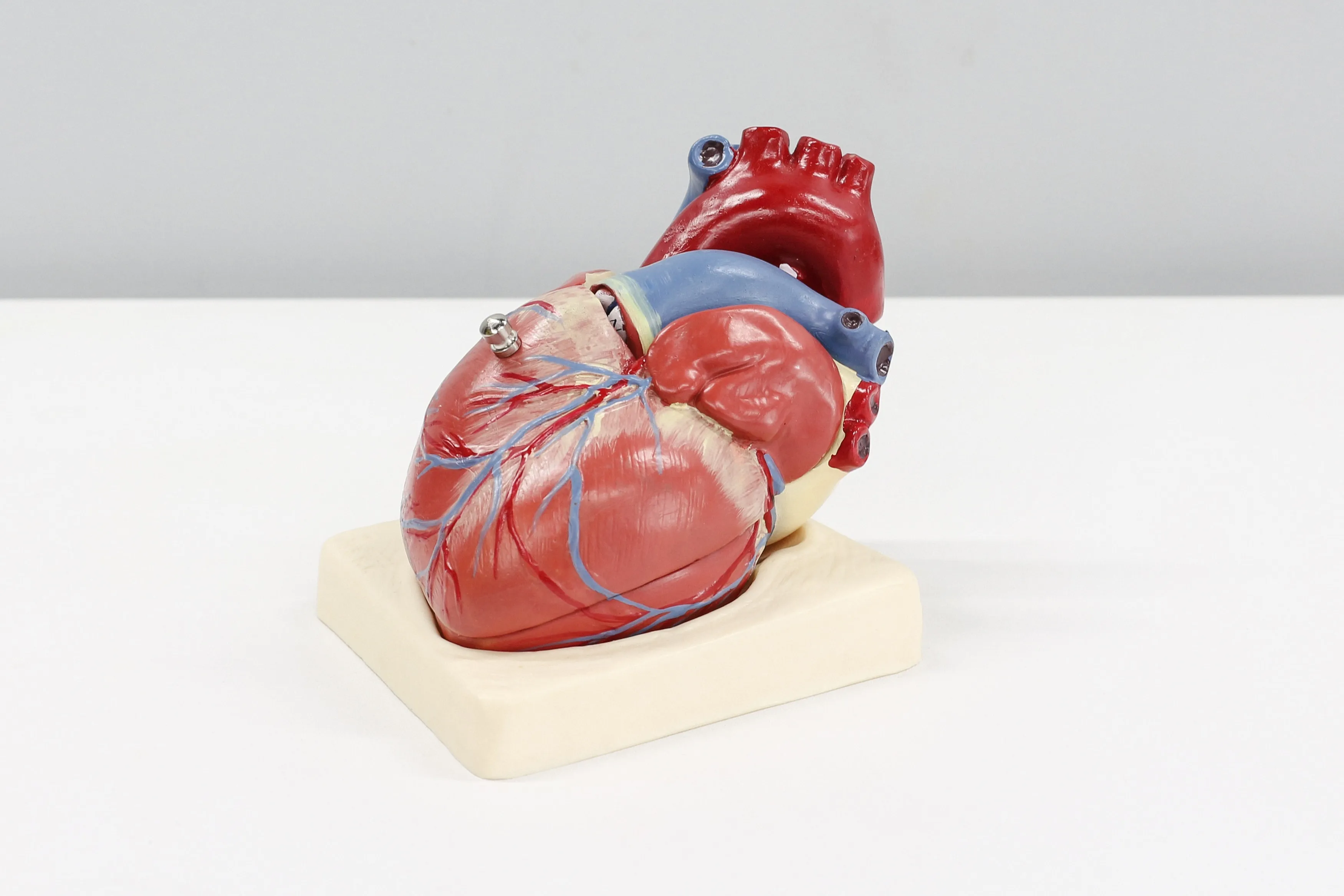When to Seek Medical Attention for Fasting Heart Palpitations
Introduction

Fasting heart palpitations can be a cause for concern, leading many individuals to wonder when they should seek medical attention. Heart palpitations are sensations of a rapid or irregular heartbeat that can be felt in the chest or throat. They may occur during periods of fasting, such as during intermittent fasting or certain religious practices. While occasional heart palpitations are usually harmless, they can sometimes indicate an underlying medical condition that requires attention. Understanding the normal heart rate range during fasting, recognizing the signs that indicate the need for medical attention, and knowing how to prevent and manage heart palpitations are essential for maintaining heart health during fasting periods. In this article, we will delve into these topics and provide guidelines for when to seek immediate medical attention and how to maintain a healthy heart while fasting.
What are fasting heart palpitations and when do they occur?
Fasting heart palpitations refer to irregular or rapid heartbeats that occur during periods of fasting. This can happen when someone is practicing intermittent fasting, which involves cycling between periods of eating and fasting. Fasting heart palpitations commonly occur during the fasting period when the body is in a state of low energy and increased stress. They may also be triggered by factors such as dehydration or low blood sugar levels. It is important to note that while fasting heart palpitations can be unsettling, they are often harmless. However, if they persist or are accompanied by other concerning symptoms, it is important to seek medical attention for further evaluation.
Causes of fasting heart palpitations
Fasting heart palpitations can be caused by a variety of factors. One common cause is the body's response to a drop in blood sugar levels during fasting. This can lead to an increase in adrenaline production, resulting in a faster heart rate. Dehydration can also contribute to heart palpitations during fasting, as it can disrupt the balance of electrolytes in the body and affect heart function. Other possible causes include anxiety or stress, caffeine or alcohol consumption, and certain medications. It is important to identify the specific cause of your fasting heart palpitations in order to determine the most appropriate treatment approach.
Normal Heart Rate During Fasting

During fasting, it is important to understand what constitutes a normal heart rate. The American Heart Association considers a normal resting heart rate to be between 60 and 100 beats per minute. However, during fasting, the heart rate may fluctuate slightly. This is because fasting can affect overall physiological functioning, including heart rate regulation. It is normal for the heart rate to increase slightly during periods of fasting due to hormonal changes and increased sympathetic nervous system activity. However, if the heart rate consistently exceeds 100 beats per minute or falls below 60 beats per minute, it may warrant further medical attention. Regular monitoring of heart rate during fasting can help identify any abnormalities and ensure optimal health during this period.
Understanding the normal heart rate range during fasting
During fasting, it is important to understand what constitutes a normal heart rate range. According to the American Heart Association, a normal resting heart rate for adults is typically between 60 and 100 beats per minute. However, during fasting, it is common for the heart rate to slightly increase due to changes in blood pressure and hormonal levels. This increase in heart rate can be considered within the normal range as long as it stays below 120 beats per minute. If your heart rate consistently exceeds this upper limit during fasting, it may be a sign of underlying health issues and should be monitored closely.
Factors that can influence heart rate during fasting
During fasting, several factors can influence heart rate. One of the main factors is dehydration. When the body lacks adequate fluids, it can lead to a decrease in blood volume, causing the heart to work harder to pump blood and resulting in an increased heart rate. Additionally, low blood sugar levels can also affect heart rate during fasting. When blood sugar drops, the body releases stress hormones like adrenaline, which can cause an increase in heart rate. Other factors that can influence heart rate during fasting include electrolyte imbalances, medication side effects, and underlying medical conditions like thyroid disorders or anxiety. It's important to take these factors into consideration when monitoring heart palpitations during fasting.
When to Monitor Heart Palpitations

During fasting, it is important to monitor your heart palpitations to ensure your heart is functioning normally. Monitoring should begin if you experience any irregularities or changes in your heart rate or rhythm during fasting. These irregularities may include a pounding sensation, skipped beats, or a fluttering feeling in the chest.
Additionally, it is recommended to monitor your heart palpitations if you have underlying medical conditions such as high blood pressure or heart disease. These conditions can increase the risk of experiencing abnormal heart rhythms during fasting.
Regular monitoring of heart palpitations can help you identify any patterns or triggers and provide valuable information to your healthcare provider for accurate diagnosis and treatment.
When should you start monitoring your heart palpitations during fasting?
During fasting, it is important to pay attention to any changes in your heart palpitations. It is recommended to start monitoring your heart palpitations if you experience any unusual or concerning symptoms such as a rapid or irregular heartbeat, chest pain, dizziness, or shortness of breath. These symptoms could be an indication of an underlying medical condition or a potential risk to your heart health. Monitoring your heart rate regularly during fasting can help you identify any patterns or abnormalities and provide valuable information for your healthcare provider. It is always better to be proactive and seek medical advice if you have any concerns about your heart palpitations during fasting.
How to accurately monitor heart palpitations
To accurately monitor heart palpitations during fasting, it is important to be aware of your body and pay attention to any changes or irregularities in your heart rate. One way to do this is by checking your pulse. Place two fingers on your wrist or on the side of your neck and count the number of beats you feel in 15 seconds. Multiply that number by four to get your heart rate per minute. You can also use a heart rate monitor or smartwatch that tracks your heart rate continuously throughout the day. This can provide valuable information about any fluctuations in your heart rate during fasting. It is important to note any significant changes and discuss them with a medical professional if necessary.
Recognizing When to Seek Medical Attention

Recognizing when to seek medical attention for fasting heart palpitations is crucial for ensuring your well-being. While occasional heart palpitations during fasting may be normal, there are certain signs and symptoms that warrant immediate medical attention. If you experience severe or prolonged palpitations, dizziness, shortness of breath, chest pain, or fainting during fasting, it is important to consult with a healthcare professional. These symptoms may indicate an underlying medical condition that requires prompt diagnosis and treatment. It is always better to err on the side of caution and seek medical attention if you are unsure about the severity of your symptoms.
Signs and symptoms that indicate the need for medical attention
During fasting, experiencing heart palpitations can be quite common. However, there are certain signs and symptoms that indicate the need for immediate medical attention. If you are experiencing heart palpitations along with severe chest pain, shortness of breath, dizziness, fainting, or an irregular heartbeat, it is important to seek medical help as these symptoms may indicate a more serious underlying condition. Additionally, if your heart palpitations are accompanied by excessive sweating, nausea, or discomfort in your arm or jaw, it is important to consult a healthcare professional as soon as possible. Ignoring these symptoms can potentially lead to complications and should not be taken lightly.
When should you be concerned about your heart palpitations?
When experiencing heart palpitations, it's important to know when they are cause for concern. While occasional episodes of heart palpitations are generally harmless and can be attributed to factors such as stress or caffeine intake, there are certain signs and symptoms that may indicate a more serious underlying condition. If your heart palpitations are accompanied by chest pain, shortness of breath, dizziness, fainting, or a rapid and irregular heartbeat that lasts for an extended period of time, it is recommended to seek immediate medical attention. Additionally, if you have a history of heart disease or other cardiac conditions, it's essential to consult a healthcare professional for further evaluation and guidance.
Underlying Medical Conditions

Underlying medical conditions can contribute to the occurrence of heart palpitations during fasting. Some common conditions that can cause these palpitations include thyroid disorders, such as hyperthyroidism or hypothyroidism, which can disrupt the normal functioning of the heart. Other potential causes include electrolyte imbalances, such as low potassium or magnesium levels, which can affect the heart's electrical activity. Additionally, certain heart conditions, like arrhythmias or structural abnormalities, may also lead to heart palpitations during fasting. It is important to recognize and address these underlying medical conditions in order to effectively manage and treat fasting-related heart palpitations. Seeking medical evaluation and diagnosis is crucial for identifying these conditions and developing an appropriate treatment plan.
Common medical conditions that can cause heart palpitations during fasting
During fasting, certain medical conditions can lead to heart palpitations. One common condition is anxiety or stress, which can trigger an increase in heart rate. Another possible cause is low blood sugar levels. When the body lacks glucose for energy, the release of stress hormones can cause palpitations. Other underlying conditions that may contribute to heart palpitations during fasting include hyperthyroidism, an overactive thyroid gland; arrhythmias, abnormal heart rhythms; and high blood pressure. It's important to note that these conditions may require medical intervention and should be managed appropriately to prevent complications.
How these conditions affect your heart health
Medical conditions that can cause heart palpitations during fasting can have varying effects on heart health. For example, conditions like hyperthyroidism, where the thyroid gland produces excessive amounts of thyroid hormones, can increase heart rate and put strain on the heart. Similarly, conditions like atrial fibrillation, where the heart's electrical signals are irregular, can lead to rapid and irregular heart palpitations. These abnormal rhythms can disrupt blood flow and increase the risk of blood clots. Additionally, conditions such as high blood pressure or cardiovascular disease can further exacerbate the impact of fasting-induced heart palpitations on overall heart health. It is essential to manage these underlying conditions to reduce the potential risks to the heart.
Medical Evaluation and Diagnosis

During a medical evaluation for fasting heart palpitations, healthcare professionals will gather information about your medical history, including any underlying conditions and medications you are taking. They will also perform a physical examination to check your vital signs, such as blood pressure and heart rate. In order to determine the cause of your heart palpitations, diagnostic tests may be conducted, such as an electrocardiogram (ECG), stress test, or echocardiogram. These tests can provide valuable insights into the structure and function of your heart, allowing healthcare providers to make an accurate diagnosis and develop an appropriate treatment plan. It is important to cooperate with your healthcare team during this process to ensure an accurate evaluation and diagnosis is made.
What to expect during a medical evaluation for fasting heart palpitations
During a medical evaluation for fasting heart palpitations, individuals can expect a thorough examination by a healthcare professional. The doctor will begin by taking a detailed medical history and asking specific questions about the frequency, duration, and intensity of the palpitations. They may also inquire about any other symptoms experienced during fasting. The next step typically involves performing a physical examination that includes checking blood pressure, heart rate, and rhythm. Depending on the findings, additional diagnostic tests may be ordered such as an electrocardiogram (ECG), echocardiogram, or stress test. These tests help assess the structure and function of the heart to identify any underlying conditions causing the palpitations.
Diagnostic tests used to determine the cause
When experiencing fasting heart palpitations, it is important to undergo diagnostic tests to determine the underlying cause. One common test is an electrocardiogram (ECG), which measures the electrical activity of the heart. This test can identify abnormal heart rhythms and structural problems in the heart. Another test that may be conducted is a Holter monitor, which records the heart's electrical activity over a period of 24 to 48 hours. This can help capture any irregular heart rhythms that may not occur during a short ECG. Additionally, blood tests may be recommended to check for any imbalances or abnormalities in electrolyte levels or thyroid function. These diagnostic tests play a crucial role in identifying the cause of fasting heart palpitations and guiding appropriate treatment options.
Treatment Options

Treatment options for fasting heart palpitations may vary depending on the underlying cause and severity of the symptoms. In most cases, lifestyle changes and self-care tips can help manage mild to moderate heart palpitations. These may include maintaining a healthy diet, staying hydrated, getting regular exercise, managing stress levels, and avoiding stimulants such as caffeine and nicotine. However, for more severe cases or if there is an underlying medical condition contributing to the palpitations, medication or other interventions may be necessary. It is important to consult a healthcare professional for proper evaluation and guidance in determining the most appropriate treatment approach.
Lifestyle changes and self-care tips to manage fasting heart palpitations
To effectively manage fasting heart palpitations, certain lifestyle changes and self-care tips can be implemented. First and foremost, it is crucial to maintain a healthy and balanced diet during the fasting period. This includes consuming enough water and electrolytes to support proper heart function. Regular exercise and stress reduction techniques such as meditation or deep breathing exercises can also help regulate heart rhythm. Additionally, monitoring blood pressure levels and managing any underlying medical conditions, such as high blood pressure or thyroid disorders, can contribute to reducing heart palpitations. It is important to consult with a healthcare professional for personalized advice on lifestyle modifications for managing fasting heart palpitations.
Medications and interventions for severe cases
In severe cases of fasting heart palpitations, medications and interventions may be necessary to alleviate symptoms and reduce the risk of complications. Medications such as beta blockers or calcium channel blockers may be prescribed to help regulate heart rate and rhythm. In some instances, additional interventions such as cardiac ablation or implantation of a pacemaker may be recommended to address underlying heart conditions that are contributing to the palpitations. It is important to consult with a healthcare professional who can evaluate your individual case and determine the most appropriate course of treatment for you.
Prevention and Risk Reduction

To prevent fasting heart palpitations and reduce the risk of experiencing them, it is important to take certain precautions. First and foremost, it is recommended to follow a balanced diet and maintain a healthy lifestyle overall. This includes regular exercise, stress management techniques, and getting enough sleep. It is also crucial to stay hydrated during fasting periods and avoid excessive caffeine intake, as it can contribute to heart palpitations. Additionally, individuals with underlying medical conditions should closely monitor their health and follow their doctor's advice regarding medication and treatment. Taking these preventive measures can significantly reduce the likelihood of experiencing fasting heart palpitations and promote overall heart health during fasting periods.
How to prevent fasting heart palpitations and reduce the risk
To prevent fasting heart palpitations and reduce the risk, it is important to maintain a healthy lifestyle and follow certain guidelines. First, it is crucial to stay hydrated by drinking plenty of water during fasting periods. Dehydration can contribute to heart palpitations, so adequate fluid intake is essential. Additionally, avoiding triggers such as caffeine, nicotine, and alcohol can help reduce the occurrence of heart palpitations. It is also advisable to manage stress through relaxation techniques like meditation or deep breathing exercises. Regular exercise, following a balanced diet, and getting enough sleep are also important steps in preventing fasting heart palpitations. Consulting with a healthcare professional for personalized advice is recommended for individuals with underlying medical conditions or concerns.
Healthy habits to maintain heart health during fasting
During fasting, it is important to adopt healthy habits that support heart health. This includes staying hydrated by drinking an adequate amount of water throughout the day. Additionally, maintaining a balanced diet during non-fasting hours is crucial to provide essential nutrients to the body, which indirectly supports heart function. Engaging in regular physical activity can also help improve cardiovascular health and reduce the risk of heart palpitations. It is recommended to consult with a healthcare professional before starting any exercise routine during fasting. Finally, managing stress levels through relaxation techniques such as deep breathing or meditation can also promote overall heart health.
Conclusion

In conclusion, while fasting heart palpitations can be common during periods of intermittent fasting, it is important to be aware of the signs and symptoms that may indicate the need for medical attention. It is normal for your heart rate to slightly increase during fasting, but if you experience persistent or severe palpitations, it may be a sign of an underlying medical condition. If you have any concerns or are experiencing additional symptoms such as chest pain, dizziness, or shortness of breath, it is crucial to seek immediate medical attention. By carefully monitoring your heart health and following healthy habits during fasting, you can reduce the risk of complications and maintain a healthy heart.
When to seek immediate medical attention for fasting heart palpitations
If you experience fasting heart palpitations that are accompanied by symptoms such as severe chest pain, shortness of breath, dizziness, fainting, or a rapid and irregular heartbeat, it is crucial to seek immediate medical attention. These symptoms may indicate a more serious underlying condition such as arrhythmia, heart attack, or heart failure. Additionally, if your fasting heart palpitations persist for an extended period of time or worsen in intensity, it is important to consult with a healthcare professional. Ignoring these symptoms can put your health at risk, so it is always better to err on the side of caution and seek medical attention promptly.
Guidelines for maintaining a healthy heart during fasting
During fasting, it is important to prioritize heart health and take measures to maintain a healthy cardiovascular system. Here are some guidelines to follow:
- Stay hydrated: Ensure that you are drinking an adequate amount of water during the fasting period. Dehydration can put additional strain on the heart.
- Eat a balanced diet: When breaking your fast, focus on consuming nutritious foods that provide essential nutrients for heart health, such as fruits, vegetables, whole grains, lean proteins, and healthy fats.
- Monitor blood pressure: Keep track of your blood pressure regularly, as high blood pressure can increase the risk of heart palpitations and other cardiovascular issues. Consult with a healthcare professional if you notice any concerning changes in blood pressure.
- Manage stress levels: Practice stress management techniques such as deep breathing exercises, meditation, or engaging in activities that help you relax. Stress can contribute to heart palpitations, so finding ways to reduce it is crucial.
- Engage in regular physical activity: Incorporate moderate-intensity exercise into your daily routine to promote heart health. However, it is essential to consult with a healthcare professional before starting any new exercise regimen during fasting.
- Get enough sleep: Adequate sleep is vital for maintaining overall health, including heart health. Aim for 7-9 hours of quality sleep per night to support your cardiovascular system.
- Follow your doctor's recommendations: If you have any pre-existing heart conditions or are taking medication for them, follow your doctor's advice regarding fasting and managing your condition effectively.
By following these guidelines, you can help maintain a healthy heart during fasting and reduce the risk of experiencing heart palpitations or other cardiovascular issues. Remember to listen to your body and seek medical attention if you notice any concerning symptoms or changes in your condition.
